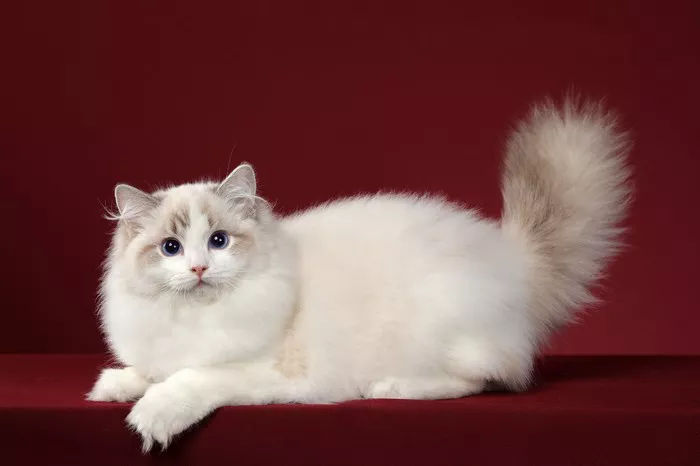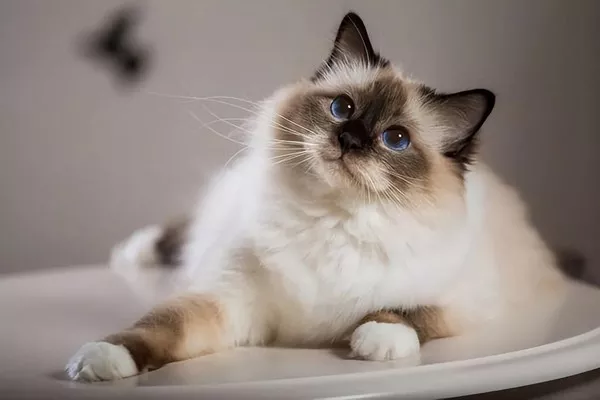Cats are beloved companions known for their mysterious behaviors and unique traits. If you’ve ever witnessed your cat throwing up water, you might be concerned about their health and well-being. While occasional vomiting can be normal for cats, frequent or persistent episodes of vomiting water may indicate an underlying issue. In this article, we’ll explore the potential reasons why your cat is throwing up water, from minor causes to more serious health concerns. By understanding the possible triggers and taking appropriate steps, you can ensure your feline friend’s health and happiness.
Common Causes of Vomiting in Cats
1. Hairballs
One common cause of vomiting in cats is hairballs. Cats groom themselves by licking their fur, and as a result, they may ingest hair. Hairballs can irritate the stomach lining, leading to vomiting.
2. Sudden Diet Changes
Abrupt changes in a cat’s diet, such as switching to a new food brand or introducing new flavors, can trigger gastrointestinal upset and vomiting.
3. Eating Too Quickly
Cats that eat too quickly may gulp down air along with their food, leading to stomach discomfort and vomiting.
Vomiting Water: Potential Reasons
1. Regurgitation vs. Vomiting
It’s essential to differentiate between regurgitation and vomiting. Regurgitation is the passive expulsion of undigested food or liquid from the esophagus. Vomiting involves forceful contractions of the stomach muscles.
2. Excessive Grooming
Cats that excessively groom themselves may ingest more water than usual. This can lead to vomiting if the stomach becomes overly full.
3. Drinking Too Much Water
Excessive water consumption, known as polydipsia, can result from various underlying medical conditions. Cats with polydipsia may vomit water due to the large volume they’ve consumed.
Possible Health Concerns
1. Gastrointestinal Issues
Chronic gastrointestinal problems, such as gastritis or inflammatory bowel disease (IBD), can lead to vomiting water. These conditions often require veterinary evaluation and treatment.
2. Kidney Disease
Kidney disease can cause excessive thirst and vomiting. If your cat is vomiting water frequently, it’s important to rule out kidney-related issues.
3. Diabetes
Diabetic cats may experience vomiting due to fluctuations in blood sugar levels. Increased thirst and urination are also common symptoms of diabetes.
When to Seek Veterinary Care
1. Frequency and Duration
If your cat is vomiting water occasionally, it might not be a cause for immediate concern. However, if the vomiting is frequent, persistent, or accompanied by other symptoms, consult a veterinarian.
2. Additional Symptoms
Watch for signs such as lethargy, loss of appetite, weight loss, diarrhea, or changes in behavior. These symptoms can provide valuable clues about the underlying cause.
Steps to Take at Home
1. Monitor Behavior
Keep a close eye on your cat’s behavior and note any changes. This information will be valuable when discussing the issue with your veterinarian.
2. Offer Small Meals
If you suspect that your cat’s vomiting is related to eating too quickly, consider offering smaller, more frequent meals to encourage slower eating.
3. Hairball Prevention
To help prevent hairballs, regularly groom your cat and consider using hairball control products. These products can aid in the passage of ingested hair through the digestive tract.
Veterinary Diagnosis and Treatment
1. Physical Examination
When you visit the veterinarian, they will conduct a thorough physical examination of your cat and ask about their medical history.
2. Diagnostic Tests
Depending on the symptoms and suspected causes, your veterinarian may recommend diagnostic tests such as blood work, urinalysis, X-rays, or ultrasound.
3. Treatment Plan
Once a diagnosis is reached, your veterinarian will recommend a treatment plan tailored to your cat’s specific needs. Treatment options may include dietary changes, medications, or other interventions.
Preventive Measures
1. Gradual Diet Changes
To prevent dietary-related vomiting, make any diet changes gradually over the course of several days.
2. Hydration and Nutrition
Ensure your cat has access to fresh water and a balanced diet to support overall health and well-being.
3. Regular Veterinary Checkups
Regular veterinary visits are essential for monitoring your cat’s health and catching any issues early.
See Also: 5 Most Common Illness in Cats
Conclusion
In conclusion, if you notice your cat throwing up water, it’s crucial to consider the potential causes and seek veterinary care if needed. While occasional vomiting may be normal, frequent or persistent vomiting can indicate underlying health concerns. By understanding the common triggers, observing your cat’s behavior, and consulting a veterinarian when necessary, you can take proactive steps to ensure your cat’s health and comfort. Remember that early intervention and appropriate care are key to maintaining your cat’s quality of life and fostering a strong bond between you and your feline companion.


























